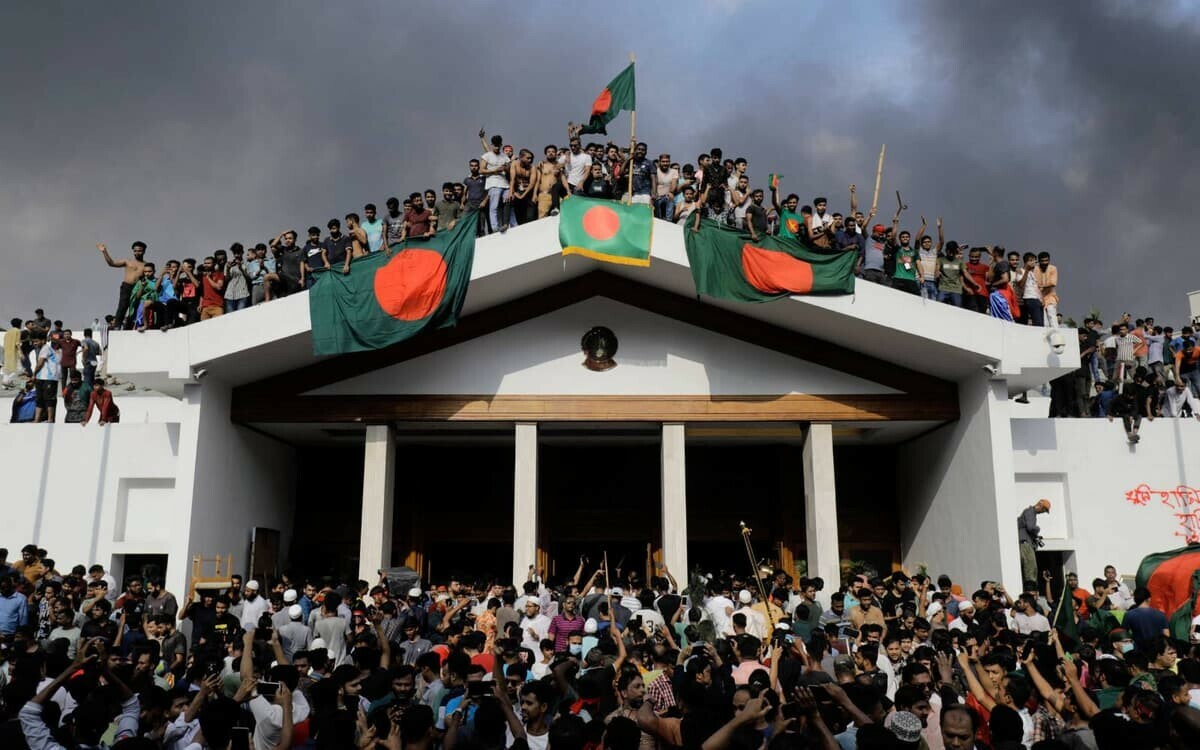Thousands are expected to flood into Dhaka today to mark the first anniversary of the mass protests that led to the ousting of former Prime Minister Sheikh Hasina. The day will be observed with rallies, concerts, and prayer sessions across the Bangladesh’s capital.
The commemorative events will culminate in a major announcement outlining a roadmap for democratic reform—charting the country’s political transition from an uprising fueled by economic hardship and state repression to a new phase under an interim government led by Nobel Peace Prize laureate Muhammad Yunus.
“Together, we will build a Bangladesh where tyranny will never rise again,” Yunus declared in a message to the nation, honouring those who lost their lives during last year’s protests that ultimately forced Hasina to flee to neighbouring India.
Yunus expressed hope that a peaceful, free, and transparent election could be held early next year. He also reaffirmed his commitment to restoring full democratic governance, amid mounting pressure for a faster political transition and growing labour unrest across the country.
“Fallen autocrats and their self-serving allies remain active,” interim leader Muhammad Yunus warned, calling for national unity to safeguard the achievements of last year’s uprising. His government, he noted, is actively engaged in reform talks with political parties and civil society groups.
Yunus emphasized that the interim administration has already launched sweeping reforms, and trials related to the “July killings” are moving forward at a rapid pace.
Security was tight across Dhaka on Tuesday, with police on high alert and armoured vehicles patrolling key areas to prevent any disruption by the banned Awami League, formerly led by Sheikh Hasina.
In an open letter to the public, Hasina maintained that she never formally resigned as prime minister. “Let this anniversary not be a day of retrospection, but a rallying cry for a brighter tomorrow,” she wrote. “Bangladesh has overcome adversity before, and we will rise again—stronger, more united, and more determined to build a democracy that truly serves its people.”
Later in the day, Yunus is expected to unveil the July Declaration—a landmark document formally recognizing the 2024 student-led uprising and the country’s transition from authoritarianism to democratic renewal.
While the declaration has garnered support from major political forces, including the Bangladesh Nationalist Party (BNP) led by former prime minister Khaleda Zia, it has also drawn criticism. Supporters hail it as a blueprint for institutional reform, while skeptics argue its effectiveness may be limited without a legal mandate or broad parliamentary backing.












Leave a comment